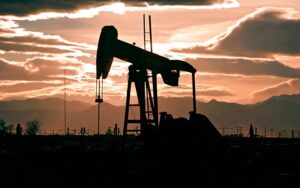Fracking: An Ethical Dilemma
Ayaan Raza
20 February 2025
No Comments
Fracking. When you hear that word, you probably think of earthquakes in Oklahoma or just another thing people protest about. Either way, it really doesn’t seem to have much of an impact on you or your day-to-day life. But what is fracking and why has it caused such a stirrup in recent events? Fracking, formally known as hydraulic fracturing, is a process used by oil and gas companies in which liquids at high pressures are injected into deep-rock formations in the Earth to open up fissures and allow natural gas to flow out. This gas can then be collected, transported, and sold by these energy companies to make a profit. Although this process was first applied in 1947 by the Stanolind Oil company, it was transformed in the 1970’s into a viable technique for extracting oil with the advent of new technologies such as horizontal drilling and 3D seismic imaging. Proponents of fracking have long stated how fracking will boost energy production in the U.S. and may even be the key to changing the U.S.’s position from the world’s leading importer of oil to a net exporter, shifting away from a historical reliance on foreign oil. However, in recent times, questions have been raised about its impact on the environment, with studies linking it to the contamination of water supplies in the vicinity of the wells, endangering the lives of thousands of American citizens. Therefore, such expansion needs to be stopped to prevent the contamination of the water supply.
Vehemently, proponents argue how “The U.S. is in the midst of an energy revolution” with the potential to shake up energy production for decades to come. This has been caused by natural gas from shale deposits deep in the Earth that can now easily be extracted via fracking. And as these bountiful deposits have large yields, they can meet the enormous demands that American consumers have. In fact, shale gas has risen to constitute 25 percent of America’s gas supplies, up from just one percent less than two decades earlier. Many researchers have gone on say how this “shale boom is also reviving economically suffering parts of the country, while offering a new incentive for manufacturers to stay in the U.S.” Essentially they claim that fewer jobs will be outsourced with the development of these projects that will extract shale oil and gas right here in the United States. This, in turn, will help boost the economies of several parts of the country where many new jobs will be created. In fact, data showed that communities that host hydraulic fracturing “see an economic gain of $1,300 to $1,900 per household, per year.” This will greatly benefit the lower middle class as these jobs and other economic opportunities that will be created will largely be aimed toward blue-collar workers who could definitely use the extra money, especially if they are encountering financial difficulties.

However, many oppose fracking, alarmed at the clear dangers it presents to the environment and human health. Two professors at Boston University write how “fracking extracts natural salts, heavy metals, hydrocarbons and radioactive materials from the shale, posing risks to ecosystems and public health when these return to the surface.” These toxic substances can have severely damaging effects on the surface environment and can potentially cause permanent damage to the ecosystem. And if they come into contact with humans, they can cause a variety of adverse health effects. Far worse, however, are the fluids that are pumped into the earth to extract the gas, “containing toxic chemicals known” to have “negative health effects such as respiratory, neurological and reproductive impacts, impacts on the central nervous system, and cancer.” It is bad enough that these chemicals are being used in the first place, but what is worse is that they goes largely unaccounted for after the fracking operation is completed. Most of the time, this “high-pressure injection of a cocktail of nearly 600 chemicals, including known carcinogens and neurotoxins” is left in the Earth as wastewater, and the companies who run the fracking operations end up paying little to no compensation for it due to what critics call the “Halliburton Loophole.” This loophole essentially exempts drilling companies from following various environmental protection laws such as the Clean Air Act and the Safe Drinking Water Act. With such toxic water leftover and no one taking responsibility for it, ethical questions are raised, especially with recent evidence from experts, scientists, and landowners suggesting a correlation between fracking operations and the contamination of water supplies in the vicinities of these projects, with “clear evidence of fracking-related contamination in water samples.”
Therefore, we need to put a stop to the expansion of fracking because of the dangers it poses to our environment. This is the ethical response because it puts the health and well being of people over the profits of large corporations, even if such expansion is projected by some to increase blue-collar jobs in the future.
Copyright © 2019 - 2024 CAWaterConservancy.org.

Leave a Reply